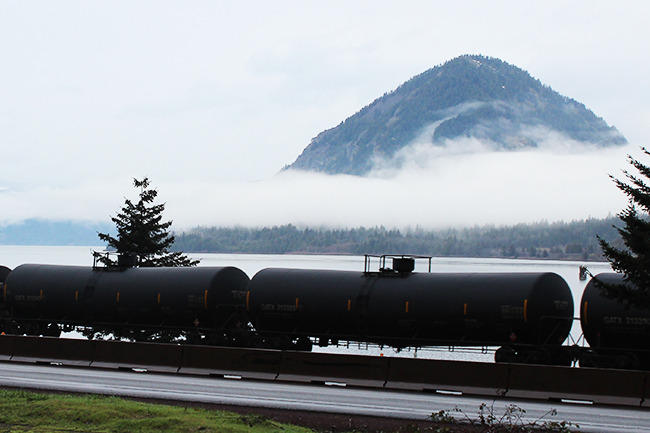June 28, 2017 (Salem, OR) — Oregon Joint Committee on Ways and Means passes House Bill 2131 related to oil train emergency response and financial responsibility for oil train derailments, spills and fires. The bill will be scheduled for a floor vote in the House and Senate.
Stand Up to Oil Coalition Statement:
“One year after the Mosier oil train derailment and fire, Oregon deserves meaningful and enforceable standards for oil train emergency responses. Instead, HB 2131 lacks standards for oil spill response plans, is not enforceable, and shrouds emergency response plans in secrecy. Mosier and Oregon deserve stronger protections and transparency,” said Michael Lang, Conservation Director of Friends of the Columbia Gorge, on behalf of the Stand Up to Oil Campaign.
Background:
Oregon has the weakest laws on the West Coast for oil train emergency response. As originally drafted, HB 2131 required railroads to submit oil spill contingency plans for state approval, demonstrate their ability to meet the requirements of their plans, provide financial responsibility statements to state regulators and assess fees to the railroads. As amended, the bill is unenforceable. It prohibits public involvement and disclosure, and fails to adequately plan to protect communities and the environment from the next derailment, oil spill and fire. While the bill asks the railroads to show that they can pay the costs of a major derailment, these financial responsibility statements are hidden from the public and cannot be obtained through public records requests or court subpoena in the current version of the bill. Without any recourse to review response plans before an emergency occurs, the public will not find out if plans are inadequate until it’s too late.
For additional information, interviews:
- Michael Lang, Friends of the Columbia Gorge, 503.490.3979, michael@gorgefriends.org
- Regna Merritt, Oregon Physicians for Social Responsibility, 971.235.7643, Regna@oregonpsr.org
- Dan Serres, Columbia Riverkeeper, 503.890.2441, dan@columbiariverkeeper.org
- June 3, 2016: a Union Pacific oil train derailed and burst into flames in the Columbia River Gorge town of Mosier, Oregon.
- On June 27, 2017: Oregon’s Public Utility Commission voted 3-0 to approve the sale of old oil storage tanks and other equipment at Port Westward to Global Partners—an oil company with a history of environmental violations.
- Upcoming months: Washington’s Energy Facility Siting Evaluation Council (EFSEC) will make a recommendation on the Tesoro Savage proposal in Vancouver, Washington. Ultimately, Washington Governor Inslee will make the final decision about whether to deny the terminal which would be the largest oil train terminal in North America. The project would bring up to five loaded oil trains each day through the Columbia River Gorge carrying the same volatile Bakken crude oil that burned during the Mosier derailment in June 2016.
###
STAND UP TO OIL is a growing coalition of groups opposed to new oil terminals and an increase in oil transport through the Northwest. Learn more at Standuptooil.org.
--

